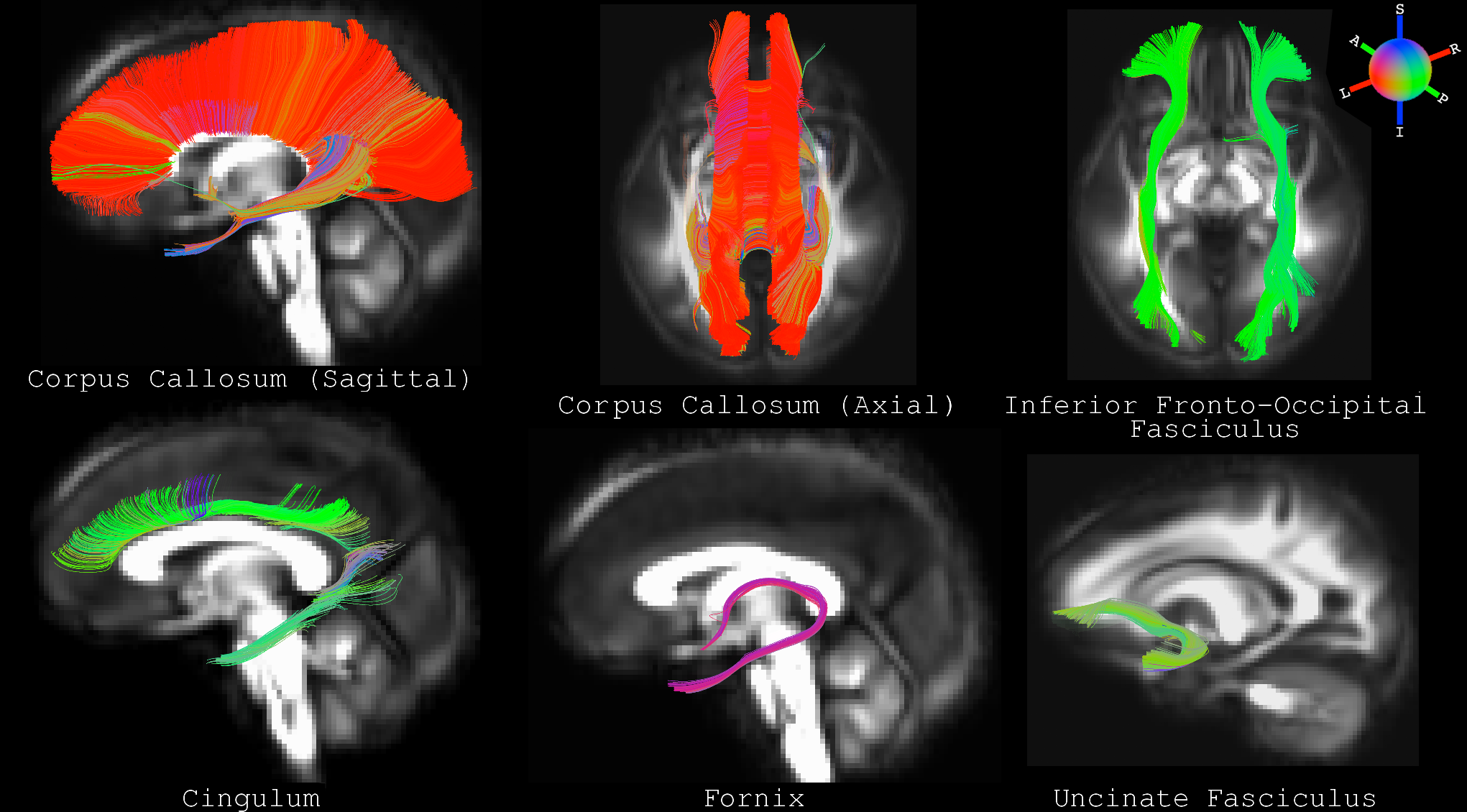Conte Adolescence Center: Project 5
Diffusion Tensor Imaging of Amygdalo-frontal Pathways
PI: Andy Alexander
This main objective of this project is to characterize the major white matter pathways with MRI and determine how they are affected in the adolescent human and nonhuman primate populations that are being studied in the center. White matter pathways provide the primary connections between distinct brain regions. Altered connectivity (either over- or under-connectivity) may be either relate to abnormalities in brain function or behavior dysfunction or may be caused by chronic differences in behavior over long period of child development and brain maturation. Specifically, we are focusing on the connections between prefrontal brain areas and the medial temporal lobe, the uncincate fasciculus in particular. White matter connectivity is being characterized using diffusion tensor imaging, which measures the directional diffusion of water in biological tissues with MRI. Changes in the diffusion tensor anisotropy or other measures reflect differences in the microstructure of the white matter connections, which may correspond to differential connectivity properties. These MRI measurements are related to measures of cortisol (a brain hormone) and behavioral measures of anxiety related traits. This work is important and unique because it investigates the potential relationships between the properties of brain white matter and the development of anxiety temperament through childhood.

